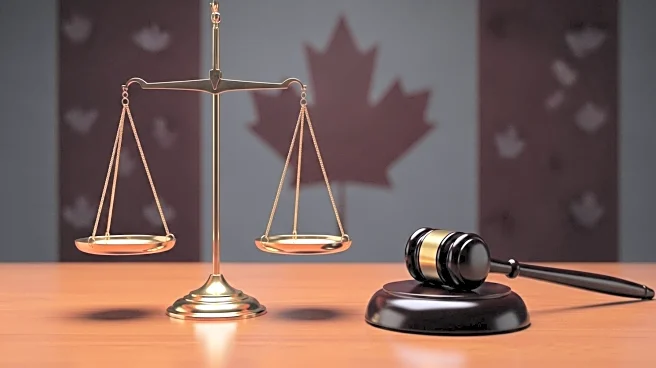What's Happening?
Conservative Party Leader Pierre Poilievre has criticized Canada's self-defence law, calling it 'vague and subjective' following a controversial incident in Lindsay, Ontario. The case involves Jeremy McDonald, who allegedly defended his home against an intruder, Michael Breen, using a knife. Both men have been charged, sparking public debate over the limits of self-defence. Poilievre argues for a law that presumes the use of force as reasonable in break-in situations, while legal experts suggest the current law already provides significant leeway for self-defence.
Why It's Important?
The debate over self-defence laws in Canada highlights tensions between public sentiment and legal frameworks. The case has drawn attention to the balance between individual rights and legal limits, with implications for public policy and criminal justice. Poilievre's stance may influence political discourse and legislative priorities, potentially affecting how self-defence is legally defined and prosecuted. The outcome of this case could set precedents for future incidents, impacting societal views on personal security and legal protections.
What's Next?
The legal proceedings in the Lindsay case will continue, with potential for charges to be reassessed as evidence is reviewed. Political leaders may push for legislative changes, influenced by public opinion and expert analysis. The case could lead to broader discussions on self-defence laws, possibly prompting revisions to ensure clarity and fairness. Stakeholders, including legal professionals and advocacy groups, may engage in dialogue to address concerns and propose solutions.
Beyond the Headlines
The case raises ethical questions about the extent of self-defence and the moral implications of using force. It challenges societal norms regarding personal safety and the legal system's role in protecting citizens. The incident may influence cultural perceptions of justice and the responsibilities of individuals in defending themselves, potentially leading to shifts in public attitudes and legal interpretations.











